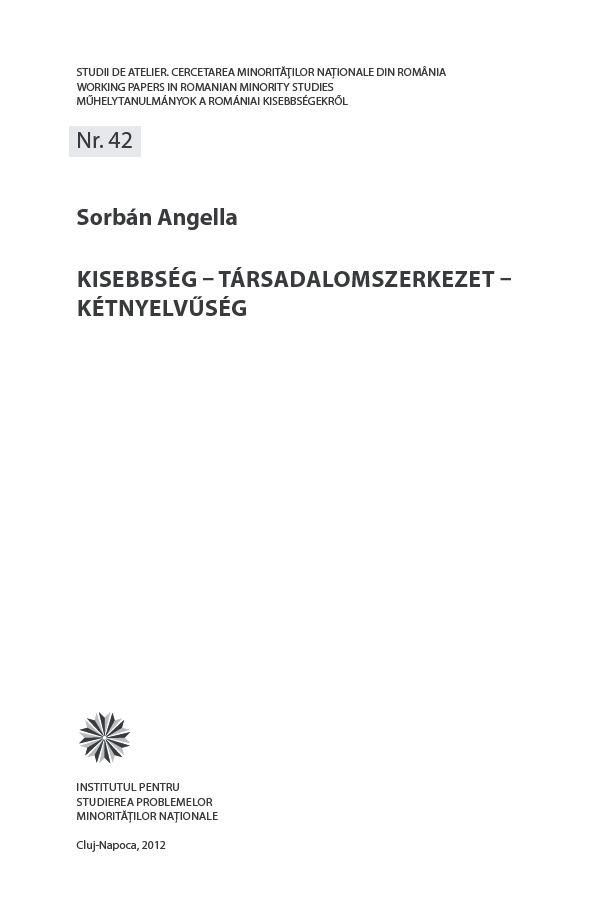Kisebbség – társadalomszerkezet – kétnyelvűség
Minority - Social Structure - Bilingualism
Author(s): Angella Sorbán
Subject(s): Language acquisition, Sociolinguistics, Culture and social structure , Ethnic Minorities Studies, Pedagogy
Published by: ISPMN Institutul pentru Studierea Problemelor Minorităţilor Naţionale
Keywords: Hungarian Minority; Bilingualism; Social structure; Romania;
Summary/Abstract: This study addresses the social structure of the Hungarian minority in Romania from the point of view of minority bilingualism and of language use practices. It summarizes the main characteristics of the minority social structure in the context of the recent past as well as the expected trends in the forecasts. Based on the data of an empirical research conducted by the Institute for the Study of National Minority Problems in 2008, it analyzes the linguistic competences of the different occupational categories in relation to the study language with different interpretations of the affirmation and the language of the communication at the place. Given that the situation of the Hungarians on the labor market is influenced not only by language skills in the state language but also by other factors (structural, cultural, symbolic) it can be concluded that the minority social structure can be rectified by education and by the accumulation of social and cultural capital in the education process. The knowledge of the language of the state is undoubtedly a specific genre of cultural capital, in minority environments this is very important, but it is only one of these genres. Therefore, the work puts the well-known Hungarian cliché - "The child to study in the Romanian language in order to be able to say better" - in a critical and at the same time more nuanced view, in relation to everyday views.
Series: STUDII DE ATELIER. CERCETAREA MINORITĂŢILOR NAŢIONALE DIN ROMÂNIA
- Page Count: 24
- Publication Year: 2012
- Language: Hungarian
- Content File-PDF

